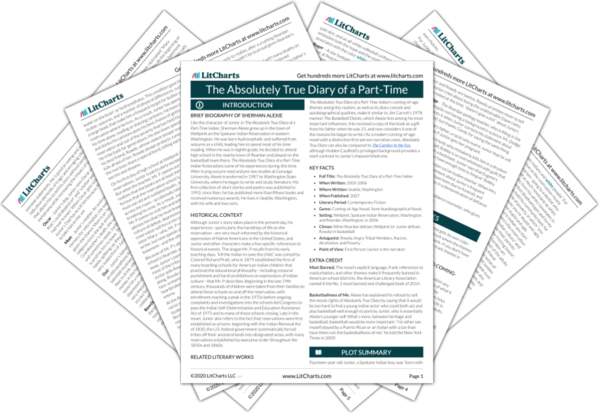From , Junior gets a book with what seems like a good definition of his grief: Euripides’
Medea, which includes the line, “What greater grief than the loss of one’s native land?” feels this applies perfectly to Indians, who as a group have lost everything, and identifies with Medea’s sense that the world is completely joyless. Depressed, Junior worries that his departure from the reservation may have cursed his family.
